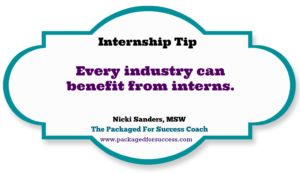Students Unprepared For the Workforce: What Employers Must Do
By Amy Glaser
As graduation season draws near, employers eagerly anticipate the fresh pool of talent about to enter the workforce. However, they should perhaps also anticipate ways in which they can best equip that talent with the tools and knowledge these young people will need to succeed in their new roles.
Such preparation is crucial: Adecco Staffing’s second annual Way to Work Generational Survey recently revealed that an alarming 74 percent of participating millennial and Gen Z respondents reported feeling as though their colleges and universities had failed to fully prepare them for their post-grad careers.
While the reason for that gap between education and professional development may be debated, employers won’t argue the need to prepare today’s new workers for tomorrow’s skills. Here are two areas to think about: training and retention tactics.
Training 101
First, employers should determine what skills are most important for an entry-level job in their organizations. In a survey in which 536 C-Suite executives assessed their respective workforces, they were asked to identify specific skills employees most often lacked. Here, 41 percent of those executives identified critical thinking and/or problem solving as the toughest skill to recruit for.
While some would argue that those skills are impossible to teach, the savviest companies are actually answering the call, developing techniques from simulations requiring problem-solving, to training devoted specifically to critical thinking.
In addition to such soft skills, hiring managers recognize the value of on-site training to fine-tune employees’ hard skills, as well. In fact, one guide to building a better workforce found that 48 percent of best-in-class companies studied had increased their company training for just such critical skill areas.
Consider, for example, an onboarding program to increase new hires’ digital literacy with technologies they may need in their roles. Webinars can be used to help employees improve their hard skills in such areas as writing, coding and public speaking, depending on the industry involved.
Employers might also consider helping job seekers develop critical professional skills before they enter the workforce. Ways to do this include fostering mentorships with aspiring candidates. Companies are offering job “shadowing” opportunities to college students; Adecco’s CEO for One Month program, for example, cultivates problem-solving and leadership skills not traditionally taught as part of standard university curriculums.
Some companies partner directly with schools and universities on programs to ensure that students will have the skills they need. Participating employers also reap benefits, by building a strong pipeline for candidates trained in they skills necessary they need.
Retention smarts
Once employers attract and secure top talent, it’s important to ensure they retain their best employees. The Way to Work survey found that one-quarter of Gen Z and Millennials believed someone should stay at a first job for one year or less, indicating a propensity by the youngest generation of workers to job-hop.
According to the Center for American Progress, the cost of replacing an employee ranges from 10 percent to 30 percent of that job’s annual salary, depending on the industry, and length of time on the job — making turnover expensive and employee retention strategy a top priority.
To keep unwanted turnover rates low, employers should help junior employees craft a desirable career trajectory within the company. According to the survey cited, 36 percent of students said that the opportunity for growth was their top priority for finding and taking a job. As such, Gen Z and millennial workers should be shown that they are valued, with opportunities to take on small leadership roles within the business.
For instance, if a specific part of a project can be delegated, these employees should be enabled to “own it.” Competencies expected should be outlined from the outset so employees can eventually demonstrate how they’ve mastered a skill and know when they can expect to take on additional responsibility.
Similarly, a company should be transparent about its policies regarding raises and promotions. Clear expectations should be set around performance reviews and the frequency of assessments. If a company has other procedures in place that determine who is eligible for a raise or promotion, and when, that too should be communicated to a new hire from the beginning.
College graduates entering the workforce can pose unique challenges for businesses, in terms of the training they need for skills not taught at their academic institutions.
If your company is hiring such workers, take the time to formalize a plan that ensures that your entry-level employees feel prepared and ready to exceed your expectations. You’ll reap the benefits once they evolve into some of your most trusted workers
Article Originally published by Fox News.

Nicki Sanders, The Packaged For Success Coach, is an Adjunct Professor with an extensive background in developing and managing internship programs. She is a skilled program manager, coach, trainer, and group facilitator who has packaged her Masters of Social Work degree and 20 years of work experience into Packaged For Success, a full service training and professional development company.
© 2016 Copyright Protected. ALL RIGHTS ARE RESERVED.